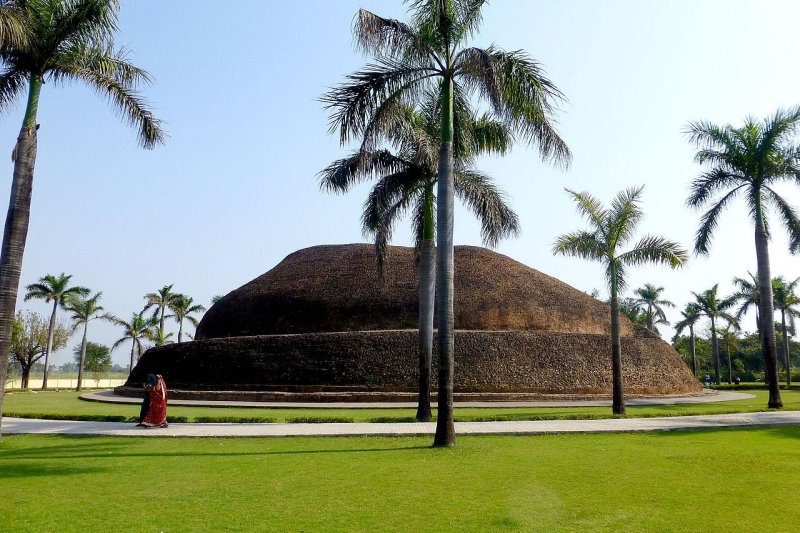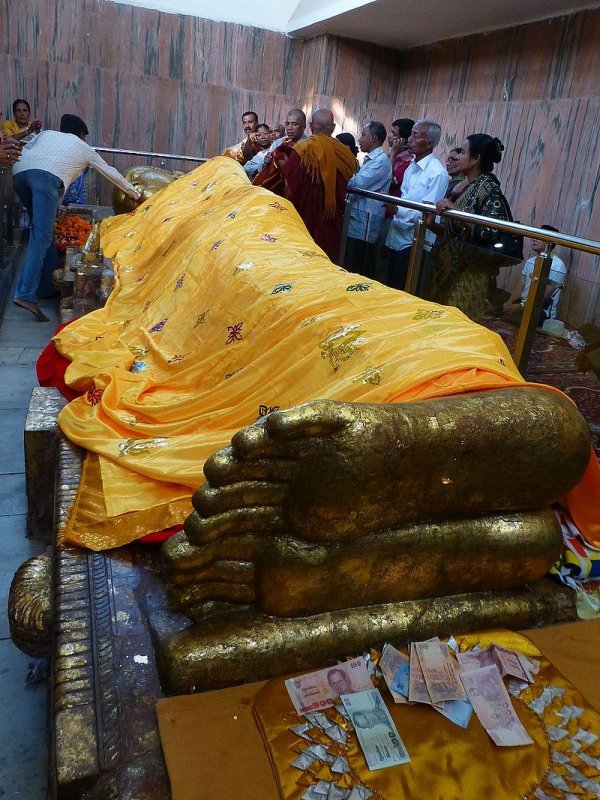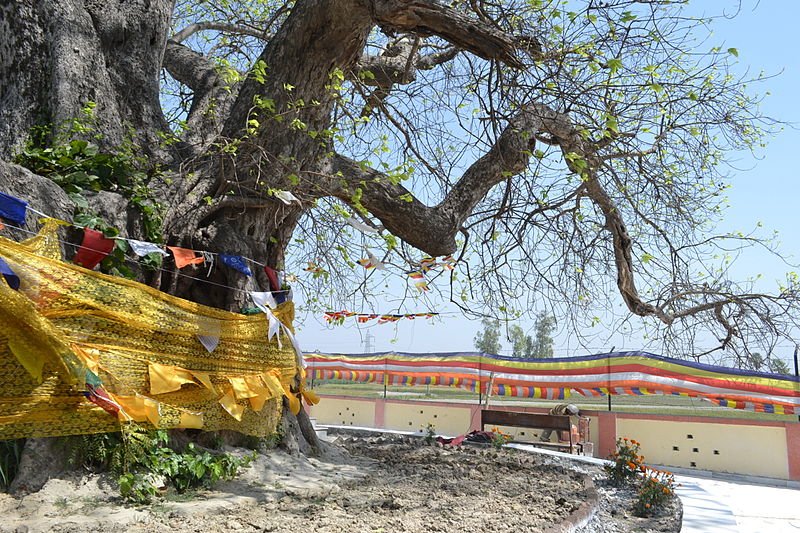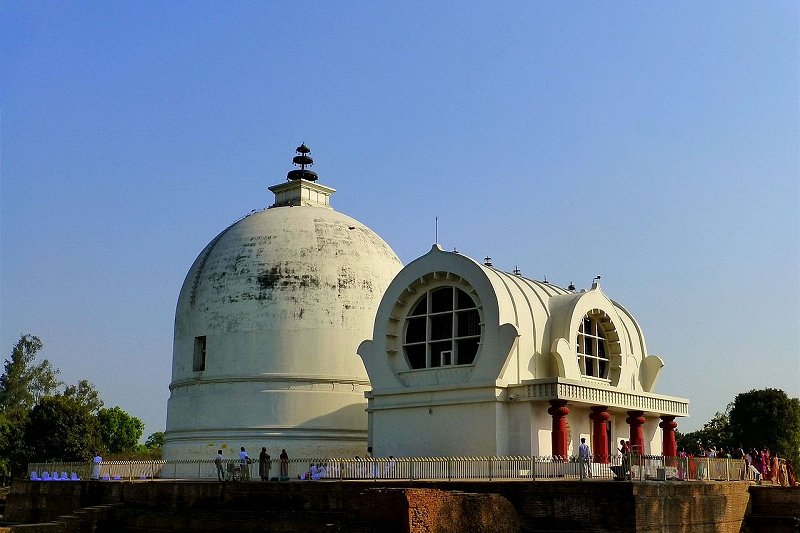 Ramabhar Stupa is Kushinagar is said to have been built on the cremation site of Buddha's ashes by Malla tribesmen
Ramabhar Stupa is Kushinagar is said to have been built on the cremation site of Buddha's ashes by Malla tribesmenSource: https://commons.wikimedia.org/wiki/Category:Ramabhar_Stupa,_Kushinara#mediaviewer/File:070_Stupa_and_Palm_Trees,_Ramabhar_(9239514950).jpg
Author: Photo Dharma

Author: Photo Dharma

Kushinagar (Hindu: कुशीनगर, Urdu: کُشی نگر), also written Kushinara, is a Buddhist pilgrimage site in Uttar Pradesh, India. Also called Kusinara or Kusinagar, it is located on the eastern side of the state, near the border with Nepal.
Kushinagar is significant among Buddhists because it was where Gautama Buddha attained Parinirvana after his death. The city has been established since ancient times and has been known by different names. it was mentioned in the Ramayan epic as the city of Kusha, the son of Ram, king of Ayodhya.
 Parinirvana statue, Kushinagar
Parinirvana statue, KushinagarSource: https://commons.wikimedia.org/wiki/Category:Kushinara#mediaviewer/File:063_Parinirvana_Statue_from_the_Feet,_Kusinara_(9236868511).jpg
Author: Photo Dharma

Author: Photo Dharma

Today Kushinagar has a number of ancient stupas and viharas, some dating back to the 3rd century BC. Among the major constructions in the city were attributed to the famous Mauryan emperor Ashoka, who was instrumental in spreading Buddhism throughout the Indian subcontinent and abroad.
Buddhist pilgrims from all over the world makes Kushinagar a much-frequented site. To cater to this influx of religious tourists, Kushinagar has developed its infrastructure including hotels and restaurants.
 Buddha Relic Distribution Site, Kushinagar
Buddha Relic Distribution Site, KushinagarSource: https://commons.wikimedia.org/wiki/File:Buddha_Relic_Distribution_Site_02.jpg
Author: Tevaprapas

Author: Tevaprapas

Places of Interest in Kushinagar
- Makutabandhana
Cremation side to Gautama Buddha, today the remains of the Ramabhar Stupa. - Mahaparinirvana Stupa
Stupa built on the site where Buddha attained Mahaparinirvana (passed away). - Parinirvana Temple
Temple on the site of Buddha's passing, was lost for centuries until rediscovered by British officer E. Buchanan in 1854. It was excavated and is today one of the pilgrimage sites in Kushinagar. - Ramabhar Stupa
Stupa built by Malla tribesmen over the site of Buddha's cremation to encase some of his ashes.
Buddhist Pilgrimage Sites
Apart from Kushinagar, the other main Buddhist pilgrimage sites are Lumbini, Bodhgaya and Sarnath. Parinirvana Temple in Kushinagar
Parinirvana Temple in KushinagarSource: https://commons.wikimedia.org/wiki/Category:Kushinara#mediaviewer/File:060_Parinirvana_Temple_from_Side,_Kusinara_(9236952663).jpg
Author: Photo Dharma

Author: Photo Dharma

 Latest updates on Penang Travel Tips
Latest updates on Penang Travel Tips
 Map of Roads in Penang
Map of Roads in Penang
Looking for information on Penang? Use this Map of Roads in Penang to zoom in on information about Penang, brought to you road by road.
Copyright © 2003-2025 Timothy Tye. All Rights Reserved.

 Go Back
Go Back